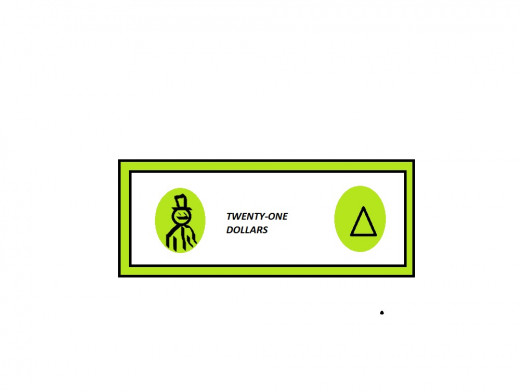How to Make and Achieve Financial Goals
Those who fail to plan, plan to fail. This is a statement that is thrown around quite frequently by many people. It is quite accurate in most instances. No matter what endeavor people begin, they have to have a goal to be successful. Do the Alabama Crimson Tide or the Ohio State Buckeyes start every football season just to play football? If they did, they would not be frequent contenders for national championships.
John Wooden, the UCLA coach with the most college basketball titles, started each year with the goal of winning the national championship. Wooden's teams won 10 titles, including eight in a row. He started each season by talking about the steps necessary to be successful and win a title. This started with something seemingly as trivial as putting on socks correctly. Financial success requires no less planning than does winning a national title.

Start Small Savings
The biggest building starts with the laying of a foundation and then a single block. A successful financial portfolio also starts with the first dollar. Some of the most successful stories when it comes to financial freedom started out with very small investments.
Many employers have 401k plans set up for their employees. These plans cost the employee nothing to get involved, other than a bit of their check. People who have a tight budget can start out with a $5 investment per week. If an employer matches the investment and the account earns nothing nor loses anything over the course of a year, that $5 weekly investment will be worth over $500 at the end of the year. This is not a huge sum, but it is something achieved by setting a goal. By the end of the year, that $5/week is not going to be missed.
If your employer does not offer a 401k account, sock the $5 per week in a savings account at the local bank or credit union. Of course, there will only be $260 stashed at the end of the year, but it is still a start.
How can you save $5 in a week? There are many ways that are not painful that can end up with huge savings. Cutting out a couple of coffees a week at Starbucks would almost make up the $5. Taking lunch from home an extra day every week will probably come close to saving $5. These are a couple of easy ways to save a few bucks that can help on the road to financial freedom.
Add on Over Time
The key to gaining more financial freedom is saving more over the long term. A goal of saving a million bucks after having only $520 after one year may seem daunting. Basically no one can reach a million off of just $520.
Those who are most successful at stashing a huge amount of money increase their contributions over time. Many jobs provide a cost-of-living increase annually. Union jobs will negotiate raises in most contracts. The temptation to spend the raise is definitely there in most instances.
Reaching your financial goals requires discipline. Instead of going out and spending every raise, the most successful savers save the raise. Let's start with our example of saving $5 per week. Starting on January 1 of next year, our hypothetical saver is scheduled to get a raise of $20 per week. A disciplined saver will choose to save the additionally $20. If the company is still matching, the $10 weekly contribution is now $50.
At this rate, our saver would have $2,600 saved over the course of a year. If the $520 is added we have a total of $3,120 saved over two years. If he or she invested her money and got a measly 5% over the course of the first year, the account would have $3,146. This is the wonder of compound interest. You can divide 72 by your interest rate and get the number of years needed to double your investment. A 4% rate of return will double money in 18 years. A 10% return would double an investment in just over 7 years.
The Total Money Makeover by Dave Ramsey
Pay off Debt
Debt is bad. Most debt is absolutely toxic. If we take the example listed in the previous section, we can reverse it for debt. The bad thing about consumer debt is the very high interest rate that it normally carries.
Paying off debt provides more money for saving. The first debt that should be paid off is consumer credit. The main reason for this is the high interest rate that does not come with a tax advantage. Those who owe mortgages can at this point deduct the interest they pay on their loan each year. This makes the debt less expensive for mortgages. There is no such advantage with credit cards or auto loans.
Financial planner Dave Ramsey talks about a debt snowball. He recommends starting with the smallest debt that you have. Pay the minimum on all debts and then pay what is left over on the smallest debt until you have it paid off. Then, take the next smallest debt and add the money that was going to the smallest debt. In this way, debts can be paid off more quickly and the feeling of progress fuels the goal of paying off debt.
Keep It Simple
The goal of paying off all outstanding debt is admirable, but if you have $250,000 outstanding including a house, it's not going to happen overnight. The goal of saving $2 million for retirement is also a great goal. It's not going to happen overnight, either.
The best thing to do in achieving financial success is to set small goals with small achievable steps. After achieving these goals, only then is it advisable to move on to bigger goals. Breaking goals into short-term and long-term goals is a good idea. The short-term goals provide progress and can help goal-setters keep from getting discouraged. Remember the tortoise and the hare, slow and steady wins the race.









